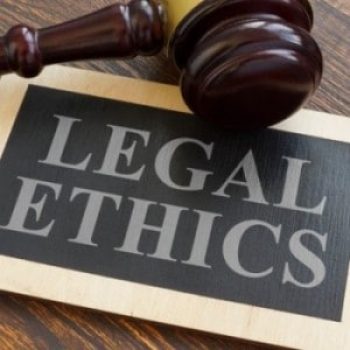In advising nonprofit organizations, attorneys must be cognizant of the unique and specific governance and corporate issues to ensure that their representation is proper and ethical. I note four key considerations below.
Attorneys for nonprofits are ultimately responsible to their boards.
Since there are no owners or shareholders of a nonprofit organization, they are supervised by their boards in accordance with the directors’ fiduciary duties. This means that boards must be informed of any problems or possible issues by senior staff and/or by the organization’s attorneys. It is incumbent upon legal counsel to ensure that the board is notified of such problems in a timely manner and engaged in their resolution.
Depending on the circumstances, attorneys should maintain communication with the Board Chair, and with the entire board when appropriate.
This is particularly important if there are problems meriting board knowledge and involvement. Attorneys should ensure that board members are informed and engaged and act in an independent manner.
There are no specific ethical rules governing representation of nonprofit organizations.
The rules and cases construing professional responsibility in the for-profit context offer significant guidance. Certainly, court decisions that apply the attorney ethics rules to situations involving nonprofit clients can be of particular assistance.
An attorney representing an organization owes a duty to the organization rather than any persons employed by or associated with the organization. (See ABA Model Rule 1.13)
When an attorney who is employed or retained by an organization is dealing with its directors, officers, or employees, if it appears that the organization’s interests may differ from the individual’s interests, the attorney is obligated to explain to the individual that he or she represents the organization and not the individual. NYRPC 1.13(a).
If the attorney knows that a person involved with the organization is acting in a manner that violates, or is likely to violate, the legal obligations of the organization, and the attorney determines that this violation is likely to result in substantial injury to the organization, the attorney is obligated to proceed as is “reasonably necessary in the best interests of the organization.” NYRPC 1.13(b).
If an issue arises whereby the attorney may have a conflict of interest as a result of prior representation of the organization, the attorney should consider advising the organization to retain other counsel. For example, if an attorney has handled a transaction for a client that later winds up in litigation, the client should retain an attorney for the litigation who was not involved in the initial transaction.
Examples of where an attorney should ensure that nonprofit boards act appropriately and independently from senior leadership include:
- Setting compensation for top executives
- Overseeing conduct and performance of executives
- Addressing complaints or problems involving executives, including allegations of discrimination or harassment
- Addressing allegedly inappropriate or illegal conduct within the organization
- Responding properly to whistleblower complaints
- Complying with conflict of interest and related party rules and law
Summary:
In the practice of representing a nonprofit organization, attorneys must consider their ethical obligations to ensure that the organization will be well-served and in compliance with legal requirements.
The information provided in this article does not constitute legal advice, and is not intended to substitute for legal counsel.
- David G. Samuelshttps://perlmanandperlman.com/author/320f361a14b10604/
- David G. Samuelshttps://perlmanandperlman.com/author/320f361a14b10604/









